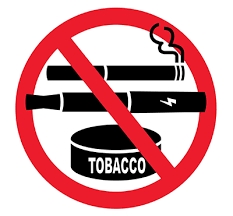
Staff Reporter: The existing tobacco control law lacks some of the major provisions from the WHO Framework Convention on Tobacco Control (WHO FCTC). In particular, the law contains provisions for smoking zones in public places and public transport, display of tobacco products at the points-of-sales and falls short of completely banning tobacco companies’ corporate social responsibility (CSR) programs. These loopholes prevent the tobacco control law from playing a strong role in achieving a tobacco-free Bangladesh by 2040, as envisioned by the Honorable Prime Minister. Besides, an amendment of the law is a must to make it stronger and time-fitting and to reach the highest global standards. Such findings have come up in a study, titled Tobacco Control Laws in Bangladesh: Analysis of Gaps and Proposed Reforms, conducted by the Department of Law, Dhaka International University, with support from Campaign for Tobacco-free Kids (CTFK). The findings were unveiled today (07 December 2021, Tuesday) during an event at the CIRDAP International Conference Centre, Dhaka.
The chief guest of the event was former Minister of Health and Family Welfare and the President of Bangladesh’s Parliamentary Standing Committee on Science & Technology Dr. A.F.M. Ruhal Haque MP. The special guests include Kazi Zebunnessa Begum, Additional Secretary (WHO Wing), Health Services Division, Hossain Ali Khondoker, Additional Secretary and Coordinator of National Tobacco Control Cell and Ms. Vandana Shah, Regional Director of South Asia Programs at Campaign for Tobacco Free Kids (CTFK). The event was presided by Prof. Dr. Ganesh Chandra Saha, the acting Vice-Chancellor of Dhaka International University (DIU). The study findings were presented by Barrister Shameem Haider Patwary, Chairman of Board of Trustees, and President of Tobacco Control and Research Cell at Dhaka International University. The discussants include Md. Mostafizur Rahman, Lead Policy Advisor, Campaign for Tobacco-Free Kids (CTFK) and representatives from National Tobacco Control Cell (NTCC), anti-tobacco organizations and civil society members.
In his speech, Dr. A.F.M. Ruhul Haque MP said, this study will come in handy to the policymakers in their attempts to amend the tobacco control law. Kazi Zebunnessa Begum, Additional Secretary (WHO Wing), Health Services Division said, It is urgent to amend the tobacco control law to make it more time-fitting. We are already working on this amendment. I hope, we will soon be able to finalize the draft of the amendment.
Vandana Shah said, the information and evidence from local and global contexts gathered in the study will help the Ministry of health to formulate a more FCTC-compliant and stronger tobacco control law. Barrister Shameem Haider Patwary said, this study will make significant contribution to the realization of the vision of a tobacco-free Bangladesh in 2040.

